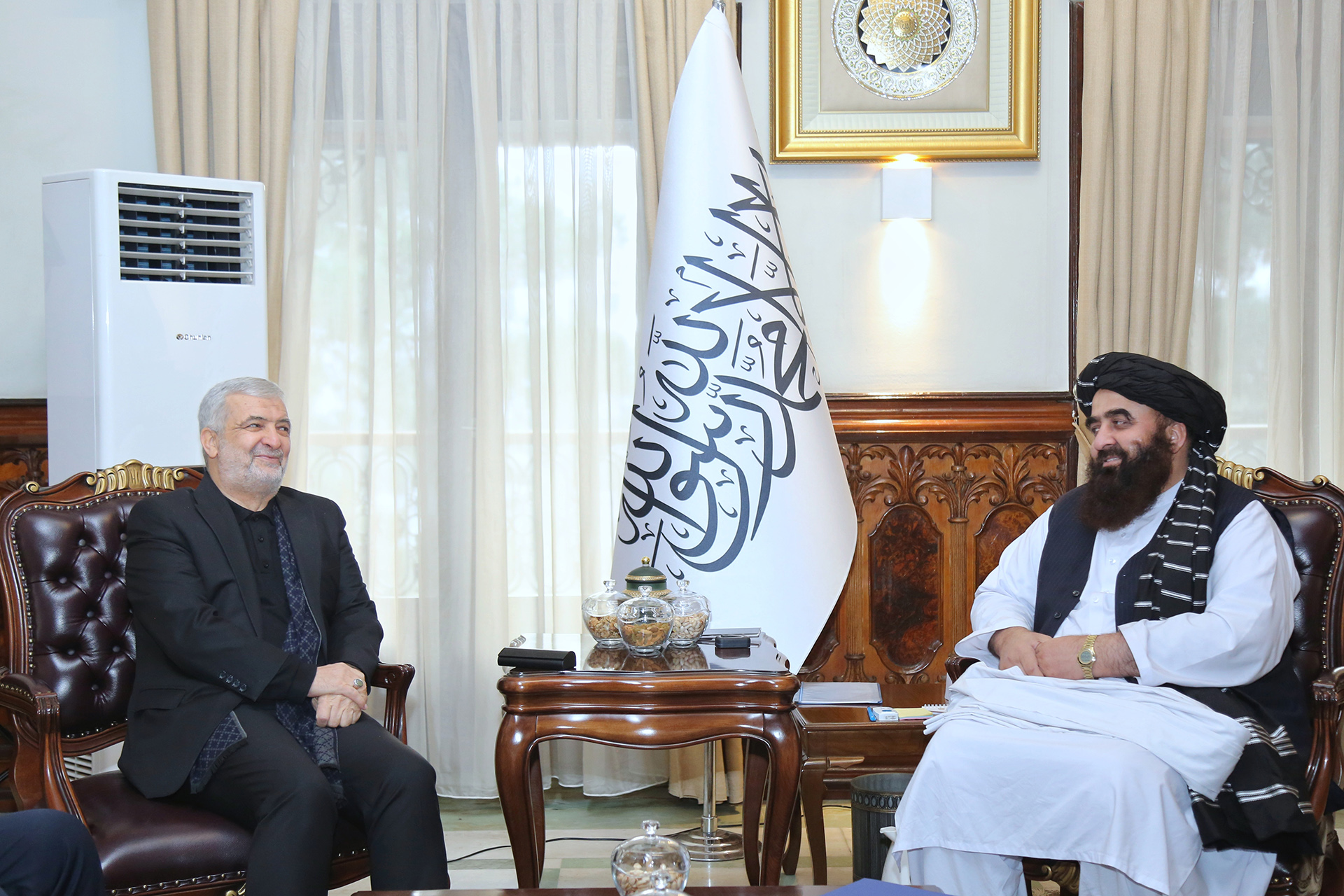Kabul
- Iran's appointment of its new ambassador to Afghanistan sheds light once again on Tehran's relationship with the ruling Taliban movement in Afghanistan, a relationship that has been subjected to ups and downs over many years.
After the publication of leaks attributed to the former Iranian ambassador to Afghanistan, Bahadur Aminian, his duties were terminated, and Tehran appointed in his place a member of the Quds Force of the Revolutionary Guards, Hassan Kazemi Qomi, as the new ambassador to Kabul.
Afghan government spokesman Zabihullah Mujahid welcomed the change. "We hope the ambassador will play an important role for the benefit of both countries," he said.
Who is Hassan Kazemi Qomi?
Hassan Kazemi Qomi was born in 1959. He holds a bachelor's degree in economics and a master's degree in strategic management. He previously held the position of Consul General of the Islamic Republic of Iran in the Afghan city of Herat.
Qomi was the first Iranian ambassador to Baghdad after the US occupation of Iraq in 2003 during the rule of former Iranian President Mahmoud Ahmadinejad.
Among his important duties was leading the Iranian delegation in the first two rounds of talks with the United States on Iraq, which were held in the office of former Iraqi Prime Minister Nuri al-Maliki in 2007.
Qomi was also appointed as a special representative of Iranian President Ibrahim Raisi to Afghanistan in October 2021, two months after the Taliban came to power.
Qomi's appointment as ambassador to Afghanistan was not surprising given that Iranian envoys to war-torn countries in the region such as Afghanistan, Iraq, Lebanon and Syria usually belong to the Quds Force.
Afghan Foreign Minister Amir Khan Mottaki (right) and former Iranian ambassador Bahadur Aminian (Al-Jazeera)
What did the former Iranian ambassador say?
Although the Iranian embassy in Kabul announced the appointment of Hassan Kazemi Qomi as a new ambassador without explaining the reasons for the dismissal of the former ambassador, Bahadur Aminian, and merely indicated that his mission ended after 3 years of his work in Kabul, a source in the Afghan Foreign Ministry told Al-Jazeera Net that "the former Iranian ambassador was dismissed on background of his leaks.
The source explained that Aminian said in these leaks that "the situation in Afghanistan is very complicated, and when I return to Kabul I feel that I am in an isolated place from the world and that the wheel of progress has stopped, and after the recent transformations there, Iran has become a supporter of the Taliban movement, and our position is very weak regarding the Afghan file, Al-Qaeda and the Islamic movements are all active in Afghanistan, and the Taliban is a disaster for Afghanistan and the world.
swing relationships
During about two and a half decades, Tehran's relations with the Taliban movement fluctuated. During the period of the first movement's rule in Afghanistan, Iran was among its main opponents, and it almost entered a war with it in 1998 following the killing of 9 diplomats in the city of Mazar-i-Sharif in northern Afghanistan. Tehran also supported the United States in overthrowing the government. Taliban in 2001.
Relations between Tehran and the Taliban movement began to attract international attention in 2015, and Iran showed its relations with the movement publicly, justifying that as an attempt to reconcile the interests of countries that have interests in Afghanistan.
The relationship between the Taliban and Tehran was strengthened when Mullah Akhtar took over the leadership of the movement, and he is seen as the godfather of relations with parties that were active during the American presence in Afghanistan.
A source close to the Taliban told Al-Jazeera Net that Mullah Akhtar Muhammad Mansour visited Iran 8 times, and met more than once with the late Iranian Quds Force commander, Qassem Soleimani.
On the other hand, Hassan Kazemi Qomi - who was a special representative of the Iranian president - visited Afghanistan 3 times, and met with senior Afghan officials, led by Acting Prime Minister Mullah Muhammad Hassan Akhund.
A source in the Afghan Foreign Ministry told Al-Jazeera Net, "In general, the relationship between the Islamic Emirate and Iran is good, and there is coordination in many matters. The movement at the crossings and borders is smooth, and we do not suffer from it as we suffer from Pakistan and Tajikistan."
Experts believe that Iran has adopted a more pragmatic stance towards the Afghan government led by the Taliban movement, and has welcomed - like China and Russia - the departure of US forces from Afghanistan.
A previous meeting between the Afghan and Iranian sides at the Afghan Foreign Ministry headquarters in Kabul (Al-Jazeera)
Iranian fears
On the other hand, Iran is concerned about securing its 572-mile border with Afghanistan, and does not want a new wave of refugees to flow into its territory, and the presence of the Islamic State Khorasan branch constitutes a common threat to Afghanistan and Iran and a point of convergence between the two sides.
A source in the Afghan Foreign Ministry told Al-Jazeera Net, "In Hassan Kazemi's first visit to Kabul after the American withdrawal, the two sides agreed to form 5 joint committees to coordinate and communicate at the highest level on combating the state organization, and regulating trade, water, refugees and borders, and visits were exchanged at the level of ministers between the two parties." ".
After the Taliban came to power in 2021, Iran was among the countries that kept its embassy in the Afghan capital, Kabul, and 4 consulates in the main Afghan cities to communicate with the new authorities.
The writer and political analyst Abd al-Haq Hammad believes - in his interview with Al-Jazeera Net - that "Iran does not want to concern itself with Afghanistan, and has accepted the new government as a fait accompli, but it views the Taliban government in the long term as a strategic threat, as the Iranian political and sectarian influence in Afghanistan declined after the withdrawal." American".

